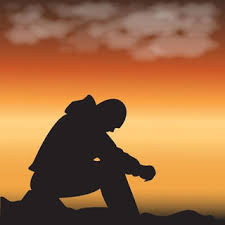
EMOTIONAL pain is an inevitable part of life. Whether from friends, family, or relationships, we all experience moments of hurt and disappointment.
Sometimes, we are the ones who inflict pain on others, intentionally or not. In the aftermath, bitterness can take root, weighing us down and keeping us stuck in the past. Instead of allowing resentment to consume us, we must embrace healing and personal growth.
By definition, bitterness is “anger and disappointment at being treated unfairly”. It can feel justified, especially when we have truly been wronged.
However, holding on to bitterness does not punish those who hurt us; it only poisons our own hearts. As Nelson Mandela wisely said: “Resentment is like drinking poison and then hoping it will kill your enemies.” If we want to live freely, we must learn to let go and choose to be better, not bitter.
Many people struggle to move past painful experiences, but healing is possible. Here are four practical steps to overcoming bitterness and embracing a teachable spirit.
Bring it to light
The first step to healing is acknowledging the pain. When we suppress our emotions, they don’t disappear; they fester. Unresolved bitterness can manifest in our words, actions and even our physical health. Holding on to resentment can lead to anxiety, stress and even depression.
Speaking about your pain, whether through journaling, confiding in a trusted friend or seeking professional help can bring clarity and relief. As Brené Brown says: “Shame thrives in secrecy, but when we bring it into the light, it loses its power.” By confronting our feelings, we begin to take control of them rather than letting them control us.
- Chipaz bares his ‘soul’ on Jah Love
- Matobo councillor, villagers clash over land
- Ndiweni appeal hearing date set
- Naaz partners Indian university
Keep Reading
Forgive them
Forgiveness is often misunderstood. Many believe it means excusing or forgetting the offence, but in reality, forgiveness is about freeing ourselves. It does not mean that what happened was acceptable; it means we refuse to let the past define our future.
Lewis B Smedes put it beautifully: “To forgive is to set a prisoner free and discover that the prisoner was you.” When we forgive, we release the grip of bitterness and make space for inner peace.
Forgive yourself
Sometimes, the hardest person to forgive is ourselves. We replay past mistakes, wondering if we could have done things differently. Guilt and shame can be just as binding as resentment towards others.
It is important to remember that everyone makes mistakes. Healing involves recognising that we are human, learning from our experiences and extending ourselves the same grace we offer a friend. As Maya Angelou said: “Forgive yourself for not knowing what you didn’t know before you learned it.”
Seek help
Healing is not a journey meant to be walked alone. Seeking support from loved ones, mentors, or therapists can provide valuable insight and encouragement. Surround yourself with people who uplift you and remind you of your worth.
Healing is non-linear; some days will feel like progress, while others may feel like setbacks. Give yourself grace in the process. The key is to keep moving forward.
Bitterness is a heavy burden, but we have the power to release it. Our actions and reactions are ultimately our own choices. Will we let pain define us or will we choose to rise above it?
Let’s commit to growth, healing and progress. Let’s choose to be better, not bitter.
- Rutendo Kureya is a medical student at Saint Petersburg State Paediatric Medical University, Russia. She is passionate about issues concerning the state and welfare of fellow Zimbabweans. She can be reached at kureyaru@gmail.com. Mobile: +7 996 274 98 66 Facebook: Rutendo Kureya. She writes here in her personal capacity.










